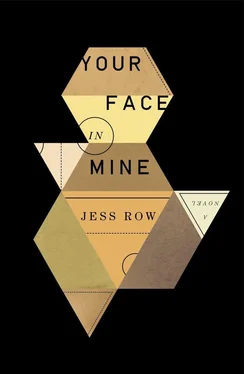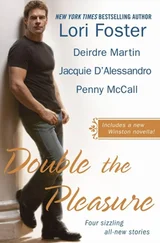She takes a hit but blows it out immediately, not bothering to hold it. Her face has the placidity of a long-disappointed lover. Which, I’m thinking, whether or not they ever slept together, is what she is.
I had high hopes, she says. I’ll admit it. I was starry-eyed. Martin talks a good game when he’s trying to get you to do something. I started off calling it a revolution in consciousness.
And it’s not?
Just listen to how he tried to get you aboard. It’s another commodity fetish, in the end. Body mod. I mean, that’s the logical endpoint of the world we live in, isn’t it? In Korea now every other girl I know has had ssangkkeopul susul . That’s the double-eyelid surgery. Can you imagine what will happen the next time there’s a big blackness craze in Japan, like the ganguro girls? Tariko’s had to cap the waiting list at two hundred just for them , did you know that? Each with a five-thousand-dollar nonrefundable deposit. And they’re not even sure what it is they’re signing up for. One of these days we’ll wake up and there’ll be two kinds of human beings, the mods and the plains. The done and the unwashed undone. Yeah, race will disappear, blah, blah, blah. It’ll stop being the smoke screen it’s always been. Frankly, it’s the last barrier to a world run purely on money. The future of whiteness is colors. Damn, that sounds good, doesn’t it? I should write that down. Maybe Tariko can use it.
Or, I say, equally possible, isn’t it, that everyone will just want to become white?
Imagine if that happened, she says. Go ahead. Imagine it. What happens in a culture where everyone has exactly the same basic coloring, the same basic feature set?
Spray-on tans.
Exactly! Look at any monocultural society. Privilege flees from itself. Whiteness flees from itself. Can’t you see that’s what I’m doing? Now that I’m almost at the end? I can’t stand myself anymore. I’ll have to take up Kabbalah or tantric yoga or something.
You’re giving your body to theory.
I don’t know what the fuck I’m doing.
She laughs, and kicks off the blanket. Her legs, curled up on the chair, are the color of something I remember but can’t quite describe. When it comes down to it, I think, I don’t have enough of a verbal palette for colors. Especially shades of pale skin. Who does, other than perhaps the Inuit, with their supposed two hundred words for snow? Something like blue ivory, or curdled skim milk. Muscular, a little thicker than I would have imagined, with wide, almost chubby feet.
Are my legs really that interesting?
They should be, after everything you’ve said.
Jesus Christ, she says, with a ripe, American grin, as if she’s about to spit out chewing gum, are you actually going to go through with it? Under these pretenses? I thought I was crazy. Why, for god’s sake? For the money?
My wife, I’m about to say, my wife—
Let’s just say there’s something I can’t go back to. Is that enough?
No, she says, that’s not enough. I’m going to hold you to it. I want details. I want a confession.
Right now?
No. Not right now. Right now I want you to sleep with me.
Her face is expressionless for a moment; then it dissolves into a fit of giggling. Her hand comes halfway up to her face, to hide the smile, as any Korean girl would; then she remembers and drops it to her side.
That didn’t come out right, did it?
Why? How did you want it to sound?
More authoritative. More Samantha Jones.
You’re not quite there yet.
But I meant it, she says, whether or not it sounded right. It’s a good idea. It’s necessary . I mean, as part of the overall experiment.
Because orgasm is a prelinguistic state.
Because you’re my ideal. Putatively. Or as close to it as I’m likely to get in Bangkok. And I’m yours, in a way. Or, well, we’ll see.
The only way to know is to find out.
Without looking down, she holds out the joint with one hand, and with the other begins to unbutton her shirt.
Her breasts are pale, diminutive, and freckled.
It’s like time travel, isn’t it? I bet I remind you of your first girlfriend.
My first girlfriend? I want to ask her. Shoshana Rubenstein, in ninth grade, on the Willow spring break camping trip? In a tent, halfway up Sugarloaf Mountain, on the Appalachian Trail? We zipped our sleeping bags together and fooled around in the dark. And the only smoke was the campfire smoke that permeated everything: our clothes, our hair, our lips and tongues. Would you like to know? I want to ask her. Would you like a fake past, too, to complement a fake body? The first black woman I ever knew —and I begin to wonder, in the moment before I take the hit, searing my lungs, where my nausea has gone. Is this the only cure for conceptual fatigue?
This isn’t really happening, I say. Want to know how I feel? That’s how I feel. It isn’t really happening.
You mean because it’s already happened?
Kind of. But that isn’t it, I’m thinking. What’s the word, I ask her, what’s the tense, for an experience that happens neither then , nor now , but out of time? An experience that never should have happened at all? Isn’t there a word for that?
We’ll have to make one up, she says, smiling. She likes a game. We should try Scrabble. Not subjunctive, but anti-junctive. Contra-junctive.
Contra-conditional.
Yeah. Good. Contra-conditional. Now enough, she says, reaching out and grasping me by the temples. Put this face where it belongs.
In the winter of my fourth year in graduate school, I came down with a bad case of the flu — or what I thought was the flu. In fact, it was mononucleosis. Only after I’d dragged myself through the last two weeks of classes and spent a night in the hospital, shivering with exhaustion under two blankets, did I realize the doctors were serious and I had to stay in bed. For the second half of January and most of February I slept in unpredictable cycles, like a newborn, and when I wasn’t sleeping I sat in my Ikea reading chair with my feet up, drinking weak jasmine tea, and shifting though stacks of photocopies I’d brought back from the National Library in Taipei. My dissertation prospectus was past due. If I didn’t submit something by the end of March, my graduate director had informed me, my stipend for the next year would be in jeopardy. There were days when I flew through page after page and days when my eyes stopped on the simplest characters, the most obvious compounds, and refused to budge, till I’d fumbled through the gigantic Hanyu Dacidian , heavier than the telephone book, that I kept propped open next to me atop a dead television.
In that chair I spent nearly as many hours asleep as awake. Wendy had just started full-time at the conservation lab in Houghton Library and was gone from eight to six. For company I left the radio turned to WCET, an open-format station, now defunct, which played BBC and CBC news and documentaries interspersed with jazz, classical, folk, blues, Afro-pop. I liked the sound of the announcers’ voices, always recognizable, always cheerful, unhurried, not aiming to please. They sounded like volunteers, which, in fact, they probably were. And alternating genres of music during the day — which ordinarily would have irritated me to no end — kept me from falling into a complete stupor. But it was the news programs, the voices drifting in from all over the world, that allowed me to sleep. In those weeks I had intensely vivid dreams in which I was never myself. I was a Masai tribeswoman, squatting in the red dust outside my thatched hut, building up a fire from embers. I was a French marine biologist afloat in a raft off Prince Edward Island, scanning the slate water for fresh icebergs. I was a nine-year-old Muslim boy searching for my mother in the wreckage of our house in Ahmedabad. Becalmed, I was like a sponge for world disasters. Routine pronouncements of sympathy from ambassadors brought tears leaking from my eyes.
Читать дальше












